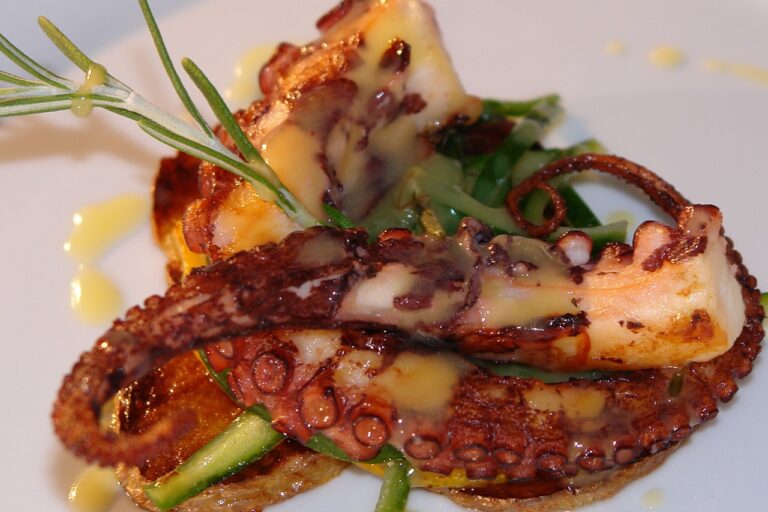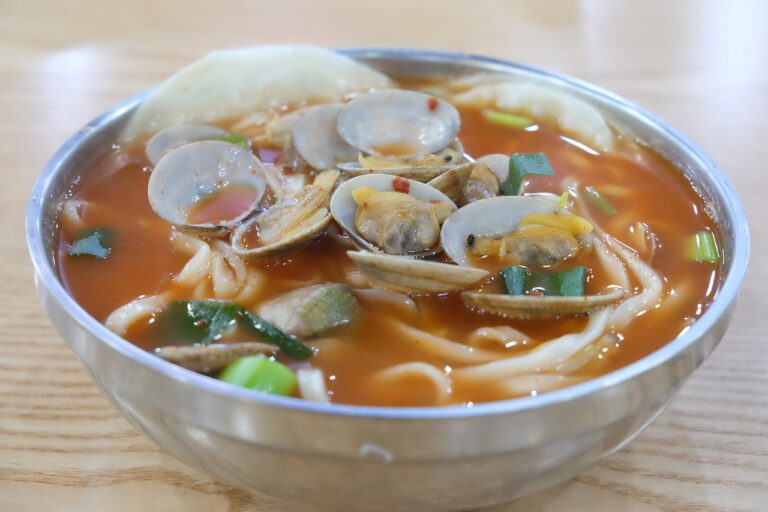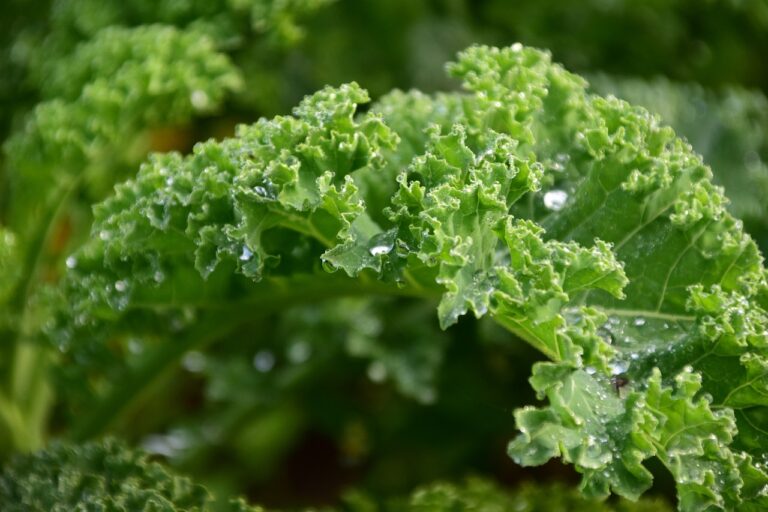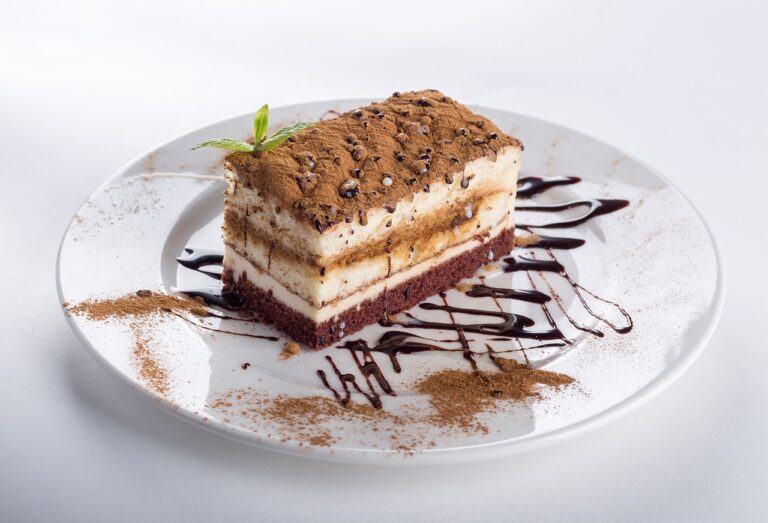Here Are 10 Cool Reasons Why You Are Craving Ice
Ice cravings can be more than just a preference for a chilled drink on a hot day. For many, the desire to chew on ice is a persistent urge, which can be indicative of underlying health issues or lifestyle factors. This article explores ten reasons behind the phenomenon of ice cravings, shedding light on the possible causes and their implications.
Why Am I Craving Ice?
1. Iron Deficiency Anemia
Iron deficiency anemia is one of the most common causes of ice cravings. This condition results from a lack of adequate iron in the body, leading to a reduced production of red blood cells.
Chewing ice might provide temporary relief for people with this deficiency. The act can increase blood flow to the brain, providing a brief moment of mental clarity or alertness. However, it’s essential to understand that ice chewing isn’t a solution for anemia. A proper diagnosis and treatment are crucial to address the root cause.
2. Nutritional Deficiencies
Apart from iron, the body needs various nutrients for proper functioning. An imbalance or deficiency in any of these can lead to unusual cravings.
For instance, a lack of calcium or zinc might lead someone to desire non-food items, a condition known as pica. Though the connection between these deficiencies and ice cravings is not fully understood, ensuring a balanced diet can help curb such urges.
3. Hydration
The body’s natural instinct to remain hydrated could manifest as an ice craving. For some, consuming ice can feel like quenching thirst.
When one is dehydrated, the body searches for ways to rehydrate. Consuming ice can momentarily provide relief, but it’s no substitute for drinking water. It’s essential to maintain proper hydration levels for overall health.
4. Oral Fixation
Oral fixation, rooted in Freudian psychology, refers to the human desire to have something in the mouth, a behavior often developed during infancy.
For some, this fixation persists into adulthood, leading them to habits like nail-biting, smoking, or ice chewing. Understanding and acknowledging this behavior is the first step to addressing and potentially redirecting the habit.
5. Stress and Anxiety
Stress and anxiety can manifest in various physical ways, and for some, it can result in an urge to chew on ice.
The repetitive act of chewing can be soothing, providing a momentary distraction from stressors. However, while it can act as a temporary coping mechanism, it’s essential to address the underlying causes of stress and anxiety for long-term well-being.
6. Pregnancy
Many pregnant women report experiencing unusual cravings, with ice being one of them. These cravings can arise from hormonal changes or specific nutritional needs during pregnancy.
While it’s not entirely clear why pregnancy might lead to an increased desire for ice, it’s always advisable for expecting mothers to consult their healthcare providers about any unusual cravings or habits.
7. Dieting and Weight Loss
Those on strict diets or aiming for weight loss might crave ice as a zero-calorie alternative to food. Chewing ice can provide a sense of satiety without adding calories.
However, it’s crucial to ensure that the body receives the necessary nutrients and calories for energy and health. Over-reliance on ice to curb hunger can be detrimental in the long run.
8. Dental Issues
For some, ice chewing can be a reaction to dental pain or discomfort. The coldness of the ice can provide temporary relief from toothaches or gum inflammation.
However, it’s worth noting that prolonged ice chewing can also cause dental problems, including enamel erosion or even cracked teeth. If dental pain is a concern, it’s essential to see a dentist rather than rely on ice.
9. Taste and Sensation
Simply put, some people enjoy the sensation of ice in their mouths. The cold, crisp feeling can be refreshing, and the act of crunching can be satisfying.
This reason is less about underlying health issues and more about personal preference. However, it’s still essential to be aware of the potential dental risks associated with frequent ice chewing.
10. Habitual Behavior
For some, ice chewing starts as a random act but gradually becomes a habit. Just like any other habit, once it’s ingrained, it can be challenging to break.
Recognizing the behavior as a habit is the first step to addressing it. From there, individuals can seek strategies or alternatives to reduce or eliminate their ice-chewing frequency.
Always Craving Ice Cubes
Craving ice cubes on a continual basis can be an intriguing habit or preference but it may also signal an underlying health condition. Often, the constant desire to chew ice, medically known as pagophagia, is associated with iron deficiency anemia. This condition can cause unusual cravings for non-nutritive substances, a behavior known as pica. For individuals who always crave ice cubes, it’s important to consider a medical evaluation to rule out anemia or other deficiencies that may be triggering this craving.
In addition to medical causes, always craving ice cubes can also be a psychological habit or even a method of stress relief. The act of chewing has been found to potentially reduce stress, and the cold sensation of ice can be soothing for some people. Nonetheless, it is essential to address this habit as it can lead to dental issues, including enamel erosion and damage to teeth. If the craving is not associated with a health condition, finding alternative stress-relief methods or satisfying the oral fixation with healthier options might be advisable.
Craving Ice After Eating
Experiencing a craving for ice after meals might seem peculiar, but it can be quite common. For some, chewing ice after eating may act as a form of palate cleanser, providing a refreshing end to a meal. Others might find that the cooling sensation helps with digestion or soothes an upset stomach. However, this habit, while seemingly harmless, could indicate that the body is seeking additional stimulation after eating, possibly due to a lack of essential nutrients like iron.
Conversely, craving ice post-meal may be a sign of gestational diabetes, which is especially relevant for pregnant women. It is not uncommon for blood sugar levels to fluctuate after eating, and this can trigger odd cravings, including the desire for ice. Anyone experiencing persistent cravings, especially after meals, should discuss these symptoms with a healthcare provider to ensure that they are not a symptom of a larger issue.
Craving Ice And Salt
Craving both ice and salt concurrently can indicate more than just a preference for flavor or texture; it may be a symptom of an electrolyte imbalance or dehydration. Salt cravings often arise when the body is in need of minerals or when there is a loss of electrolytes through sweating. When combined with an urge to consume ice, it might suggest that the body is seeking to hydrate and replenish itself simultaneously.
Alternatively, the craving for ice and salt might also be attributed to adrenal fatigue. The adrenals are responsible for managing stress and when they are overworked, one might crave salty foods and ice. These cravings could also be a way for the body to gain quick energy or alertness through the stimulating effects of cold and salt. Regardless, such specific cravings are worth mentioning to a healthcare professional to check for underlying conditions.
Craving Ice At Night
Craving ice at night might be the body’s response to various needs or conditions. Nighttime is often when people wind down and become more attuned to their body’s signals, which can make cravings more noticeable. For some, eating ice at night may be a way to combat dry mouth or dehydration, especially for those who breathe through their mouth during sleep or live in a dry climate. Moreover, nighttime cravings can be driven by habit or stress relief, as the act of chewing ice might be soothing for some individuals.
On another note, cravings at night, including those for ice, could also be indicative of changes in blood sugar levels. People with diabetes or those experiencing hypoglycemia may find themselves desiring ice or cold foods as a form of sensory stimulation to counteract feelings of discomfort or unease associated with their condition. As with any persistent craving, it’s beneficial to discuss this pattern with a doctor, especially if it interferes with sleep or well-being.
Craving Ice During Period
Many women report a variety of cravings during their menstrual cycle, and ice is no exception. Craving ice during one’s period can be attributed to several factors, including hormonal fluctuations that affect taste and sensory experiences. As estrogen and progesterone levels change, so can appetite and cravings. Additionally, ice might seem appealing as a way to ease discomfort or inflammation associated with menstrual cramps, as the coldness can serve as a natural anti-inflammatory.
Another consideration is iron deficiency, which can be more pronounced during menstruation due to blood loss. Craving ice is a commonly reported symptom for those with iron-deficiency anemia, and menstruating women are at higher risk for this condition. It’s important for women experiencing regular cravings for ice, especially in sync with their menstrual cycle, to discuss this with their healthcare provider and consider having their iron levels checked.
Craving Ice During Pregnancy
During pregnancy, it’s not uncommon for women to experience an array of cravings, and ice is one of the more frequent non-food items craved. This phenomenon is partly due to the changes in a woman’s sense of taste and smell during pregnancy, which can make the crunchy texture and neutral flavor of ice particularly appealing. Moreover,
the desire to chew ice might also arise from the increased need for hydration or as a response to pica, which is the craving for non-nutritive substances and can be indicative of a nutritional deficiency, such as iron deficiency anemia, which is relatively common during pregnancy.
Given that the need for certain nutrients increases during pregnancy, the body might be signaling a deficiency through these cravings. Furthermore, pregnant women often experience nausea, and the cooling sensation of ice can help soothe the stomach and alleviate symptoms of morning sickness. It’s crucial for expectant mothers to inform their doctors about their cravings, as they can provide valuable insights into nutritional needs and suggest appropriate dietary adjustments or supplements.
Craving Ice Lollies
Craving ice lollies can be a delightful yearning, especially during hot weather when the body looks for refreshment. The cold, sweet taste of ice lollies not only satisfies a sensory pleasure but also helps to reduce the core body temperature. This type of craving can be a simple preference for something cold and sweet, or it could be the body’s way of trying to stay hydrated and cool. Additionally, for individuals who may be on a restricted diet, ice lollies can sometimes serve as a low-calorie alternative to more calorific desserts.
However, the craving for ice lollies could also be due to nutritional deficiencies. The sugar content in ice lollies might provide a quick energy boost for those with fluctuating blood sugar levels. If someone finds themselves frequently craving ice lollies, it may be beneficial to examine their overall diet to ensure it is balanced and fulfilling all of their nutritional needs. In cases where cravings are persistent and intense, consulting a healthcare provider could help to identify any potential underlying causes.
Craving Ice Milk
A craving for ice milk may stem from a combination of desires for both the creamy texture of milk and the coldness of ice. Ice milk, which is essentially less creamy ice cream, offers a lighter alternative that can satisfy a sweet tooth without the full fat content of traditional ice cream. It can be particularly appealing to those looking to indulge in a cold treat that’s less rich or to those who may be lactose intolerant, as ice milk typically contains lower levels of lactose.
Nutritionally, craving ice milk could suggest a need for calcium or simply a desire for comfort food, as milk is often associated with comfort and nourishment from a young age. For individuals focusing on calorie intake, ice milk provides a midway point between the indulgence of ice cream and the simplicity of flavored ice. However, if this craving becomes frequent, it’s worth considering the overall diet to ensure it includes a variety of sources for essential nutrients, and to ensure that the craving isn’t masking a more serious deficiency.
Craving Ice Pica
Craving ice is a specific form of pica, a disorder characterized by the desire to eat items that are not typically considered food and have no significant nutritional value. When someone craves and consumes ice compulsively, it’s known as pagophagia. This condition can be a signal from the body that something is out of balance, often pointing to iron deficiency anemia. The urge to eat ice can be the body’s way of alerting to this deficiency, as anemic individuals might seek the oral sensory experience that chewing ice provides.
Dealing with ice pica requires addressing the underlying cause, which means a medical evaluation is necessary to determine if there is a nutritional deficiency or another health issue. Moreover, the consumption of ice in large quantities can have negative effects on dental health, potentially leading to enamel wear or tooth damage. Therefore, individuals experiencing a persistent craving for ice should consult a healthcare provider to explore both the psychological and physiological aspects of the craving and to receive appropriate treatment.
Craving Ice Spiritual Meaning
In some cultural and spiritual beliefs, craving ice can have a meaning beyond the physical or nutritional. Some interpret the craving for the coldness of ice as a desire for emotional cooling or calming of heated or intense emotions. In spiritual circles, this might be seen as the body’s intuitive way of seeking balance or as an attempt to quell inner turmoil by focusing on the physical sensation of coldness.
Additionally, the act of chewing ice is sometimes seen as a means to release pent-up energy or stress, providing a physical outlet for what may be emotional or spiritual unrest. In this context, the craving for ice could signal the need for a person to focus on their mental health and find constructive ways to deal with stressors. While such interpretations are subjective and vary widely across different belief systems, they highlight the multifaceted nature of cravings and the importance of holistic consideration of health and well-being.
Craving Iced Tea
Craving iced tea can often be attributed to its refreshing qualities and potential for caffeine content. For many, iced tea provides a flavorful alternative to water and can be a pleasant way to increase fluid intake. The caffeine found in iced tea can also be a mild stimulant, and some might crave the alertness and pick-me-up that it provides, especially during warm weather or in the midst of a busy day.
The variety of iced tea flavors available means that these cravings can also be tied to a desire for specific tastes, such as the bitterness of black tea or the tartness of a lemon-infused blend. However, craving iced tea excessively could also point towards habitual caffeine consumption or sugar addiction if the tea is sweetened. As with any dietary habit, moderation is key, and ensuring a balance of fluids and a varied intake of beverages can help maintain nutritional balance.
Craving Salty Ice
A craving for salty ice might be an unusual combination, but it isn’t unfounded from a sensory or nutritional standpoint. Salt, when added to ice, enhances its cold sensation, and this intensified experience can be particularly satisfying for some individuals. From a dietary perspective, this craving might suggest a mineral deficiency, specifically sodium, or even dehydration. The body may be seeking to replenish electrolytes that are essential for fluid balance and nerve function.
However, the craving for salty and cold items like ice should be approached with caution, as it could indicate a habit that is detrimental to dental health due to the potential for tooth enamel damage. If the craving is persistent, it is advisable to seek medical advice to ensure that it’s not indicative of an underlying health issue. Incorporating a balanced intake of minerals through a healthy diet and addressing hydration needs can often help manage such specific cravings.
Restless Legs Craving Ice
The experience of restless legs syndrome (RLS) involves uncomfortable sensations in the legs, often leading to an irresistible urge to move them. Those with RLS sometimes report a craving for ice, which may seem unrelated at first glance. However, there are theories that these cravings are associated with nutrient deficiencies, particularly iron, which is a common link between RLS and pagophagia (ice craving). An iron-deficient body might seek the sensory stimulation of chewing ice as a compensatory mechanism.
While the connection between restless legs and craving ice isn’t fully understood, addressing iron levels in the body can sometimes alleviate both symptoms. It’s important for individuals with RLS who crave ice to discuss these symptoms with a healthcare provider. They can assess iron levels and other potential deficiencies, and recommend appropriate supplements or dietary changes as needed to address both the discomfort of RLS and the craving for ice.
Suddenly Craving Ice
A sudden onset of ice craving should prompt consideration of both physiological and psychological factors. Physiologically, it can be a red flag for iron deficiency anemia, as the body might be seeking the oral sensory experience that chewing on ice provides. This condition often develops gradually, so the associated craving might appear seemingly out of nowhere once the deficiency reaches a certain level.
Psychologically, a sudden craving for ice could be related to stress or anxiety, serving as a physical distraction or a means to soothe. It’s also worth considering if any recent changes in diet or hydration could be influencing this sudden craving. If there is no apparent cause and the craving persists or is accompanied by other symptoms, it is wise to seek a medical opinion to rule out any underlying issues.
Toddler Craving Ice
When a toddler expresses a craving for ice, it’s typically worth paying attention to, as young children can have unique ways of communicating their needs. The craving could be due to teething, where chewing on ice provides soothing relief to sore gums. Alternatively, it could also be a sign that the child is exploring textures and temperatures, which is a normal part of sensory development.
However, consistent cravings for ice in toddlers could indicate nutritional deficiencies, such as low iron, especially if they’re also showing signs of fatigue or are more prone to infections. Given that toddlers are at a critical stage of growth and development, it’s important to discuss any unusual cravings with a pediatrician to ensure that their dietary needs are being met and to address any potential health concerns.
Why Am I Craving Crunching Ice
Craving the crunch of ice is a specific sensory experience that can be driven by several factors. For some, the act of chewing provides a stress-relieving sensation, while for others, the craving might be related to anemia or mineral deficiencies. The cold and crunchy texture of ice can also satisfy the need for stimulation, which might be otherwise lacking in one’s diet or routine.
It is also possible that craving crunchy ice is simply a matter of habit or preference. However, if this craving is strong and persistent, it is important to consider a health check-up to rule out any deficiencies, especially iron deficiency anemia, which is commonly associated with ice craving. Seeking advice from a healthcare provider can help determine if the craving is a symptom of a condition that needs treatment.
How To Stop Craving Ice
To stop craving ice, the first step is to understand and address the underlying cause, which often involves ensuring that the diet is balanced and provides all necessary nutrients. Increasing iron intake through foods like leafy greens, red meat, and legumes, or through supplements if recommended by a healthcare provider, can help if the craving is related to anemia.
Staying properly hydrated throughout the day can also reduce the craving for ice, as sometimes the body can signal thirst through such cravings. If the craving is due to oral fixation or stress, finding alternative ways to keep the mouth occupied, like chewing gum or eating crunchy vegetables, can be helpful. For those whose ice consumption has become habitual, breaking the routine and substituting ice with cold water or other healthy snacks can also be effective.
However, if attempts to manage the craving on your own are unsuccessful, it is important to consult with a healthcare professional. They can provide tailored advice and treatment options, including behavioral therapy if the craving is due to psychological factors or pica.
Conclusion
Craving ice is a multifaceted phenomenon, with reasons ranging from medical conditions to personal preferences. Understanding the potential underlying causes can help individuals address their cravings in a healthy and informed way. If you or someone you know consistently craves ice, it may be worth consulting a healthcare provider to ensure there are no underlying health concerns. Remember, while ice can be refreshing, it’s no substitute for proper nutrition and healthcare.





